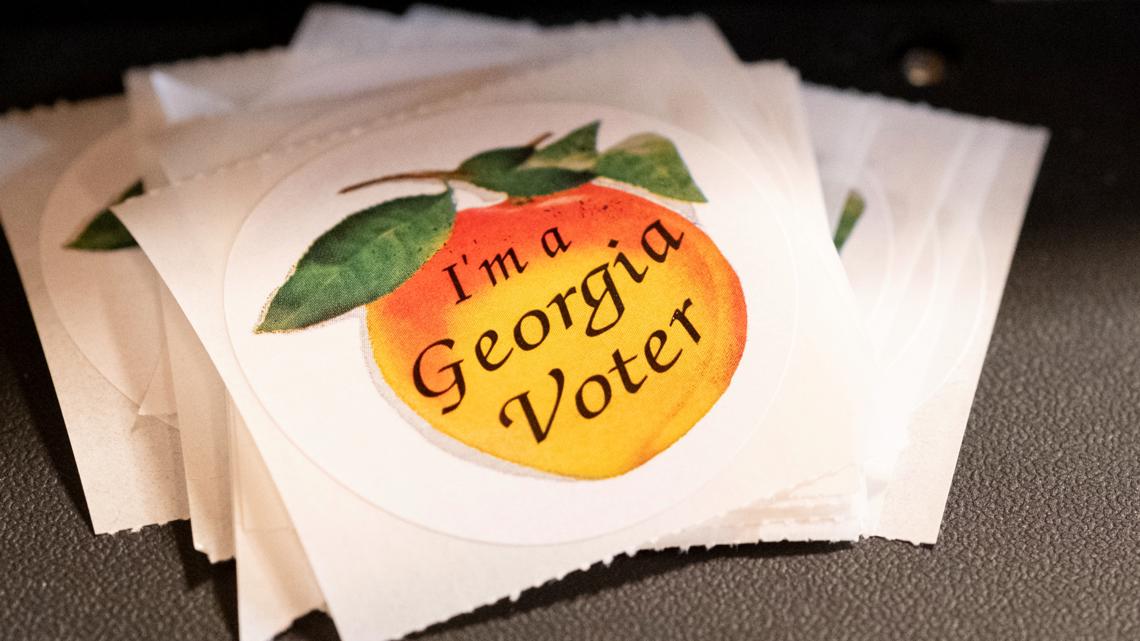PHOENIX — A Harris campaign text message targeting college students at Arizona’s public universities triggered data-privacy concerns and a state Senate investigation over the weekend.
On Sunday, students and others with ties to Arizona State University, the University of Arizona and Northern Arizona University received text messages notifying them of the voter-registration deadline, which is Monday.
“As an Arizona State University student, you can register and vote in Arizona. Register to vote at your on or off campus housing address today,” one version of the text said.
It is legal in Arizona for college students to register to vote from their dorm address, as long as they’re not registered to vote elsewhere, even if they are technically out-of-state students.
All three public universities told The Post student-directory data can be released through the Family Education Rights and Privacy Act, or FERPA, but students can opt to have their information “withheld.”
An ASU spokesperson told The Post the law also permits political campaigns to obtain the information.
“The contact information of enrolled students (including their cell phone numbers) is a matter of public record. This is not ASU policy,” the spokesperson wrote in an email. “Under FERPA, it is considered “directory information,” along with other basic information like the student’s major, dates of attendance and enrollment status. It is common for entities that want to advertise to ASU students to request this publicly available contact information — everything from apartment complexes, to credit cards, to political candidates.”
“We receive these types of requests many times throughout the year and the requestor must pay for data they ask for,” NAU Associate Vice President for Communications Kimberly Ott told The Post.
“Organizations can request directory information through the University of Arizona Office of Public Records. Under federal law, directory information is not considered private unless students opt to withhold it from public disclosure. Students can make this election at any time through their online student portal,” a University of Arizona spokesperson said.
Still, some Republicans are raising questions about the legality and ethics of using the data for mass political text messages.
State Sen. Jake Hoffman announced Sunday he plans to launch an official investigation, arguing in a tweet it’s against the law “for political campaigns to access personally identifiable information (PII) of public university students within AZ.”
“I was made aware of this breach of security by dozens of students today and intend to throw the full weight of the Arizona Senate into ascertaining how the Harris campaign acquired these students’ legally protected personally identifiable information,” Hoffman told The Post.
The Harris campaign declined to comment. It’s unclear if it obtained the list of phone numbers directly from the registrar’s office of each university or through a third-party vendor.
But the University of Arizona told The Post it “did not receive a request from the Harris campaign for directory information.”
“I know Republicans in AZ are ages behind when it comes to modern campaigning, but their ignorance doesn’t excuse this absolute lie that a text message like this asking students to register to vote is 1) election interference and 2) somehow against the law,” Democratic strategist Tony Cani tweeted Monday.
The Harris and Trump campaigns are in full force in the Grand Canyon State this week as early voting begins Wednesday. Former President Donald Trump holds a 1.4% polling average lead, per RealClearPolitics’ average. Vice President Kamala Harris is expected to visit Arizona Friday, and both Ohio Sen. J.D. Vance and Minnesota Gov. Tim Walz are rallying voters in Tucson with dueling events Wednesday.














